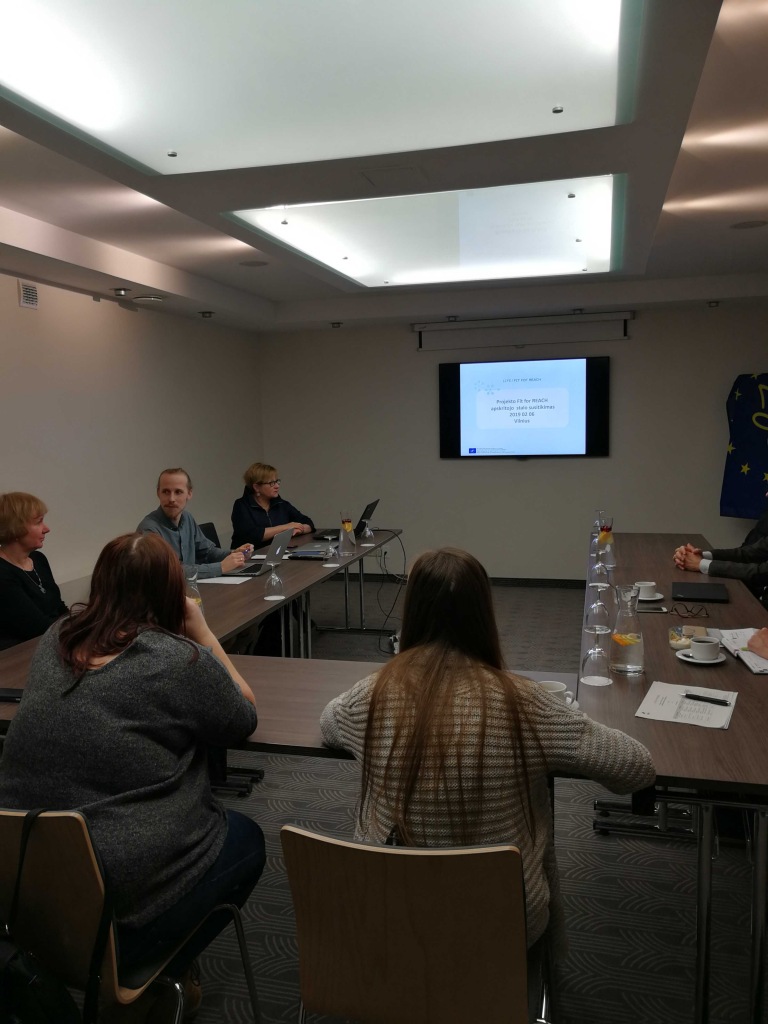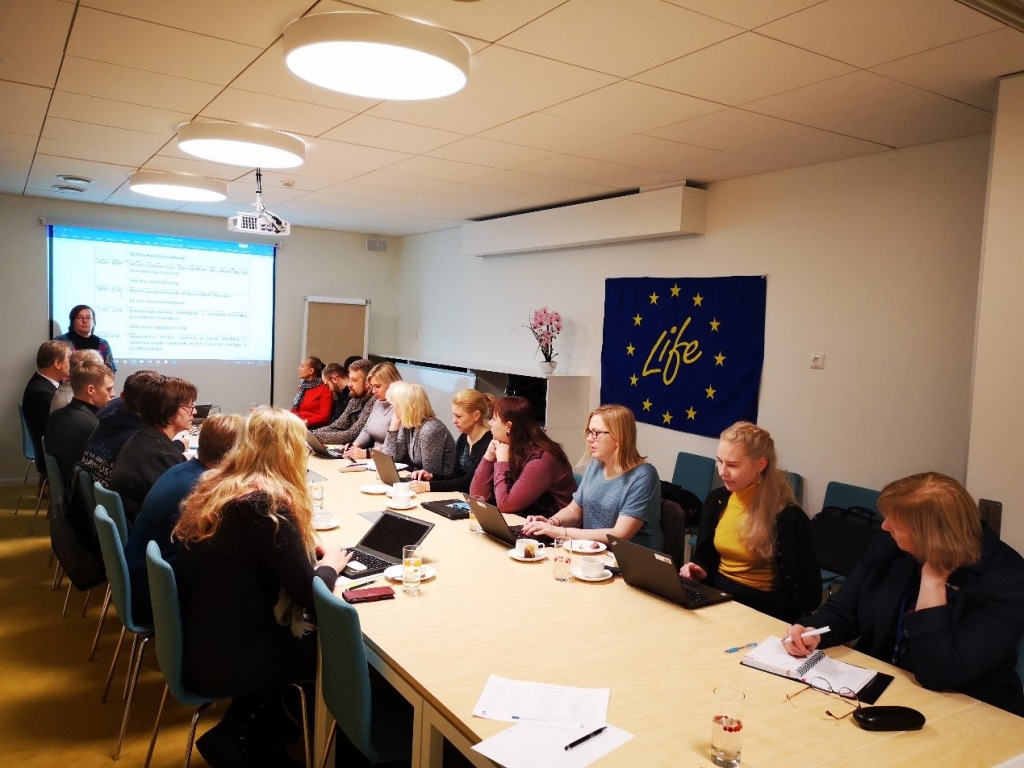What are the main obstacles in encouraging chemical substitution innovations in businesses and how to overcome them?
Annual national round tables in the framework of LIFE/Fit for REACH were organised in the beginning of 2019 in all three Baltic States. The discussions focused mainly on the results of the survey carried out by HeiVäl Consulting in 2018 in Estonian, Latvian and Lithuanian companies regarding environmental responsibility of medium and small size enterprises.
Top and medium level managers of nearly 300 enterprises from Estonia, Latvia and Lithuania were interviewed in this survey about their thoughts about their environmental performance and social responsibility actions: what are the main motivators and main barriers for such? One of the main takeaways from these interviews was that environmental concerns, legislation and care for workers health are the main motivators for Baltic SMEs to substitute hazardous substances in their products and production processes. Nearly half (46%) of 300 interviewed enterprises see environmental sustainability as profitable at the moment, and even more (57%) think, that it will be more profitable in the future.

During the round table in Latvia the participants acknowledged that the survey is very valuable as it identifies important issues and provides the project team better understanding of what motivates and does not motivate businesses in chemical substitution and chemical management in general.
In Lithuania the discussion was centred on how to encourage chemical substitutions in Lithuanian companies. It was pointed out that the biggest obstacle is the lack of knowledge in hazardous chemical management and legal requirements. However, most participants agreed that it is very important to share feedback from the companies that have participated in the project – what changed after the chemical substitution, what were the main obstacles, how the safety of workplaces changed, what was the economic impact etc. Good practice examples will attract other companies to get on board as well.

In Estonia participants also discussed about green public procurement, which is often made quite difficult as the main argument in public procurements is the price. 600 public procurements out of 11 000 (5,8%) in Estonia are green but this number is rising. Misconceptions about higher price level of green products present a big obstacle and it is important to start changing these notions. In addition, results of another survey about "green washing" were also presented. It was pointed out that the prefix "ECO” is a good selling argument so it is used light-handedly on too many products. However, it was concluded that "green washing" can be combated with surveillance – both from state side but also with substantiated claims by other companies.